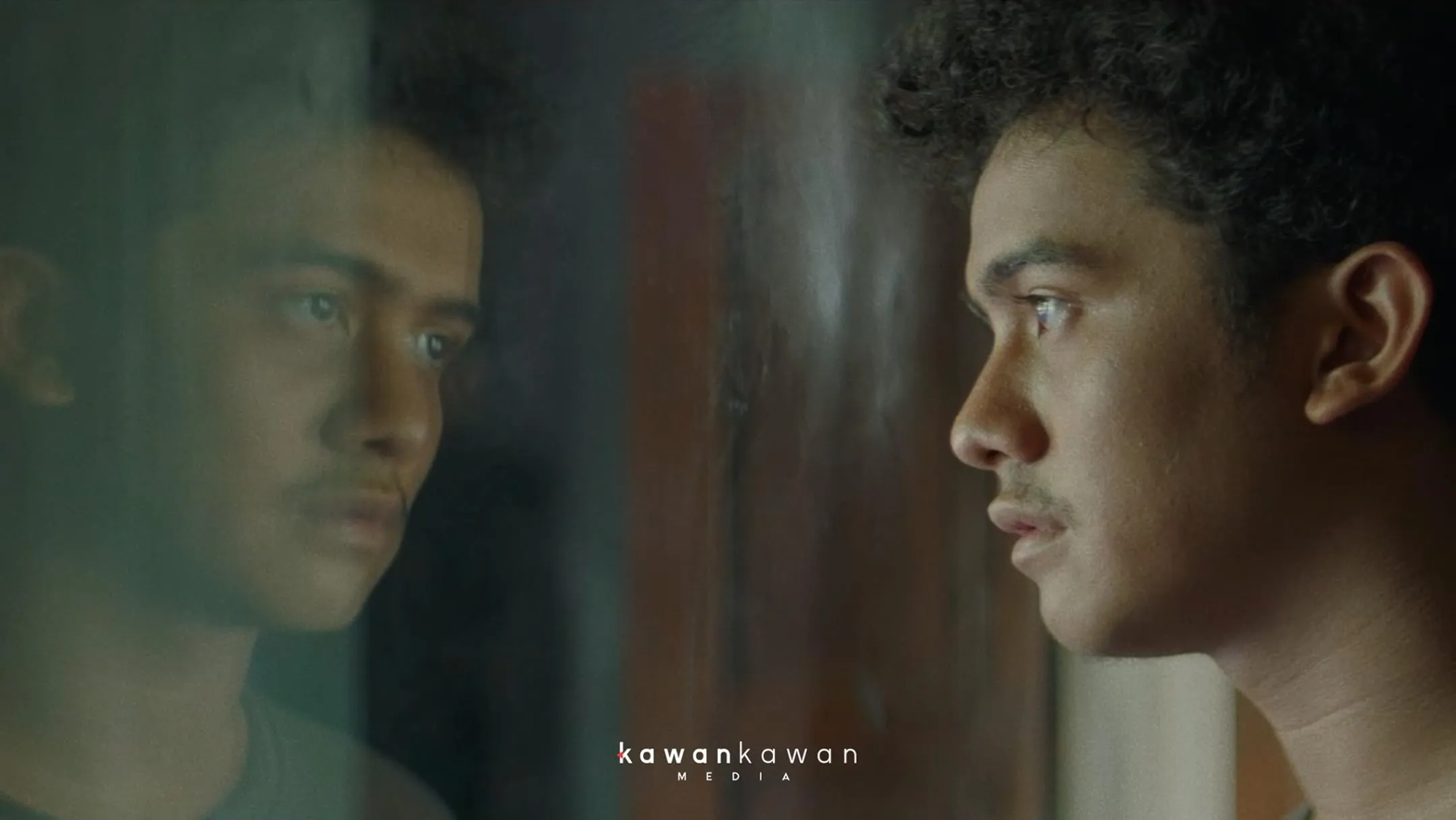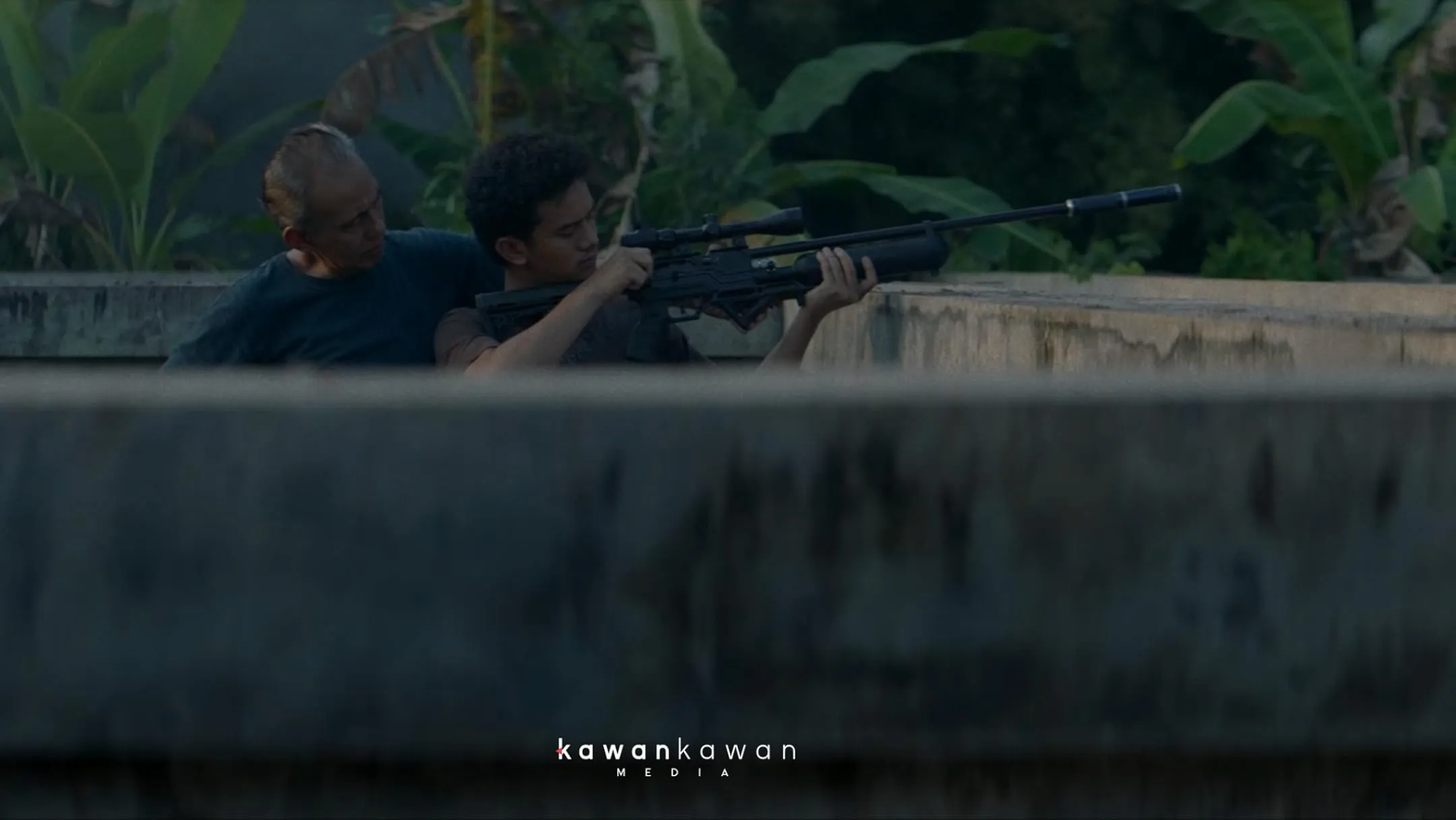Makbul Mubarak’s “Autobiography” unfurls not as a wistful recollection, but as a meticulously crafted psychological thriller, a deep dive into the shadowed corners of power and its insidious creep. It’s an Indonesian gothic, if you will, where the ghosts are historical and the hauntings are entirely contemporary.
We are introduced to an isolated, grand estate deep in rural Indonesia; a place of almost preternatural quietude, the kind that hums with an ominous, expectant stillness. Think less “peaceful countryside retreat,” more “spider’s parlour, awaiting spider.”
Our reluctant protagonist, Rakib (a compellingly mutable Kevin Ardilova), is the young caretaker of this domain. His service isn’t a job so much as a legacy, a familial tether stretching back generations, binding his clan to that of the estate’s owners. This generational servitude hangs in the air, thick as the tropical humidity.
Then, the spider arrives: General Purna (Arswendy Bening Swara, radiating a chilling gravitas), a retired military man of significant past influence, returns. His agenda? A mayoral campaign, which already feels less like a democratic bid and more like the claiming of a birthright. The power imbalance is instantaneous, a palpable charge in the atmosphere, weighty with unspoken histories and the General’s quietly imposing aura. One senses this isn’t just a man returning home; it’s an epoch reasserting itself.
The General Adopts a Protégé (Handle With Extreme Caution)
Rakib, initially a silent fixture in this quiet compound, finds his world subtly, then irrevocably, altered by Purna’s presence. The young man is something of a blank slate: his father languishes in prison (an institution for which Rakib nurses a quiet disdain), his brother is an absentee figure working abroad, leaving Rakib adrift in a sea of inherited duty.
Into this void steps the General. Purna’s initial demeanor is perhaps offhand, yet a bond, if one can call it that, begins to form. Or rather, is meticulously cultivated by the elder. Rakib, starved for a figure of authority (or perhaps just any figure), starts to see in Purna a mentor, a quasi-father.
He is impressed by the General’s worldly pronouncements, his air of command – a stark contrast to his own provincial existence. Soon, Rakib is sporting a military jacket, a hand-me-down from Purna; a small gesture, a potent symbol of nascent allegiance, or perhaps just effective branding by the General.
He becomes Purna’s shadow: chauffeur, general assistant, silent audience to the nightly chess games and accompanying “philosophical” monologues – lessons in Purna’s particular brand of power-politics. The General’s campaign, pushing a controversial energy plant set to displace local farmers, is pursued with an air of regal inevitability.
Democracy here feels like a quaint suggestion, easily overruled. And Rakib? He begins to wear his proximity to power like a new suit, a touch of unearned confidence, a flicker of borrowed importance.
All the while, Purna’s “toxic benevolence” (a term we might coin for this specific flavor of manipulation) seeps into Rakib, who absorbs it like the dry Indonesian earth absorbs the first rains. The General’s vanity is writ large – those self-portraits, that telling remark, “You look like me when I was your age” – a narcissism that requires not just reflection but replication.
When the Mask (and a Jaw or Two) Drops
The narrative pivots, as these things often do, on an act of seeming insignificance that snowballs into an avalanche. One of Purna’s campaign posters is vandalized. A minor affront, perhaps, but in Purna’s world, no slight is minor. Rakib, eager to demonstrate his fealty, his utility, diligently tracks down the culprit – a young man whose family, incidentally, stands to lose their land to Purna’s energy project.
Rakib, perhaps remembering an earlier instance where Purna defused a tense situation with a veneer of tact, likely expects a stern talking-to, a display of magnanimous power. He delivers the transgressor to the General, a cat presenting a trembling bird.
What follows is anything but measured. Purna unleashes a torrent of violence so brutal, so disproportionate, it serves as a horrifying epiphany. The mask doesn’t just slip; it shatters, revealing the abject depravity beneath the cultivated charm.
For Rakib, this is a baptism by fire, or rather, by fists. The psychological fallout is immediate and devastating: terror, shock, a profound disillusionment that hollows him out. The father figure is a monster; the mentor, a sadist. The film itself shifts gear here, the undercurrent of dread bursting to the surface, transforming the narrative into a taut psychological horror.
Rakib is now acutely, sickeningly aware of Purna’s true nature: a vain, morally unmoored psychopath. His internal world becomes a battleground, grappling with his own complicity, the dawning, awful understanding of Purna’s capacity. Past intimacies, even the seemingly benign (that excruciatingly awkward shower scene, for one), are recast in a deeply sinister light. The education of Rakib takes a very dark turn.
The National Shadow in Close-Up
“Autobiography” does more than chart the corruption of one young man; it paints a chilling portrait of how power – absolute, unquestioned – deforms and destroys. The dynamic between Rakib and Purna becomes a microcosm, reflecting the lingering shadows of Indonesia’s period under military dictatorship, those societal echoes that refuse to fade.
Rakib’s harrowing journey is that of a generation forced to reckon with a brutal national past, often becoming ensnared by its tendrils, the cost to their souls significant. Can one truly confront the monster without becoming, in some small way, monstrous oneself? The film doesn’t offer easy answers, thank goodness.
The visual language of the film is complicit in this exploration. Director Makbul Mubarak and cinematographer Wojciech Staron craft a world steeped in moral and literal murkiness. Images are often layered, viewed through grilles, rain-streaked windows, or diffuse reflections, creating a sense of claustrophobia, of being trapped within a corrupted frame.
Low lighting pervades the General’s house, as if the very architecture is an accomplice to the darkness it harbors. Kevin Ardilova as Rakib undergoes a remarkable on-screen metamorphosis, from callow youth to a soul burdened by terrible knowledge.
Arswendy Bening Swara’s Purna is a masterpiece of controlled menace, his charisma all the more terrifying for its surface plausibility. Their interplay is the film’s burning core. This is a story suggesting that the phantoms of history are not just in textbooks; they’re in the drawing-rooms, at the dinner tables, still grooming the next generation.
Autobiography premiered at the 79th Venice International Film Festival on September 2, 2022, where it won the FIPRESCI Award for Best Film in sections other than the main competition.
Full Credits
Director: Makbul Mubarak
Writer: Makbul Mubarak
Producers and Executive Producers: Yulia Evina Bhara, Louise Bellicaud, Armi Rae Cacanindin
Cast: Kevin Ardilova, Arswendy Bening Swara, Haru Sandra, Rukman Rosadi, Yusuf Mahardika, Lukman Sardi, Yudi Ahmad Tajudin, Gunawan Maryanto
Director of Photography (Cinematographer): Wojciech Staroń
Editor: Carlo Francisco Manatad
Composer: Bani Haykal
The Review
Autobiography
"Autobiography" is a masterfully unsettling descent into the psychology of power and inherited national trauma. With chilling performances and an atmosphere thick with dread, it’s a potent, artfully constructed examination of how the past grooms the present, leaving an indelible, uncomfortable mark. It demands patience but rewards with profound, disquieting insights.
PROS
- Chilling and compelling central performances.
- Masterful creation of a tense, ominous atmosphere.
- Thought-provoking exploration of power, corruption, and historical legacy.
- Artful cinematography and deliberate pacing that enhance thematic weight.
- Significant depth beyond a simple thriller.
CONS
- Deliberate slow pace might not appeal to all viewers.
- Thematic intensity can be emotionally taxing.


















































